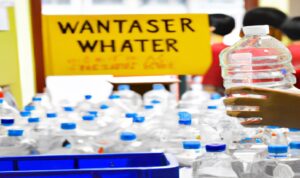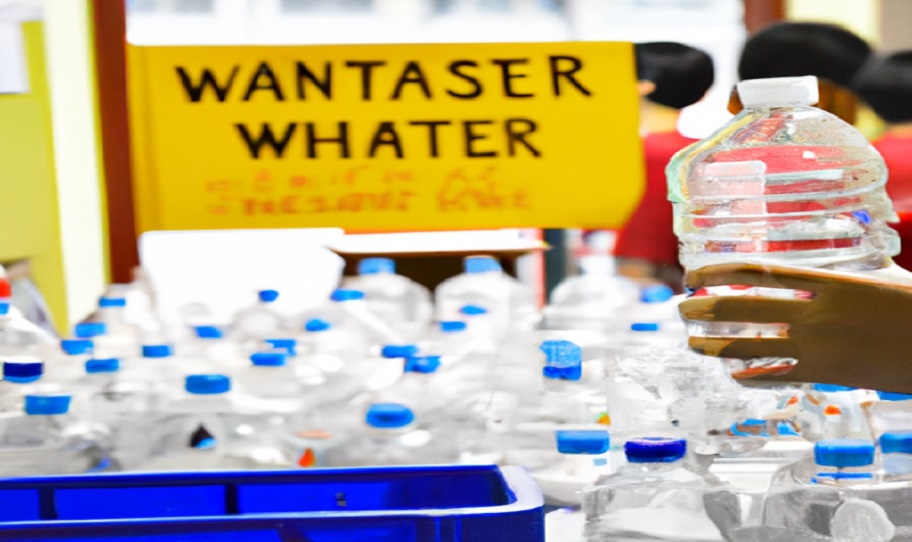In an effort to teach school students the importance of saving drinking water, Singapore has implemented water rationing measures. With limited resources, the City-State is taking steps to preserve its independence and ensure that it can continue to provide for its neighbors. By teaching the younger generation about the value of water conservation, Singapore hopes to create a sustainable future for all.
 Singapore organizes a major water rationing operation to raise awareness (AFP)
Singapore organizes a major water rationing operation to raise awareness (AFP)
This week, thousands of children in Singapore will have a drop of water in their schools’ taps. However, the country is not facing a giant shortage. But he organizes a major water rationing operation to raise awareness among the population and especially young people about the issues of conservation of the various resources of the City-State.
The country has been organizing these rationing operations in schools for several years, but had to give up on them during the years of the Covid pandemic. The exercises therefore resume from this Monday, March 13. And in total, 115 schools in Singapore will participate. That is to say that 34,000 children will learn to live for a few hours without, or with very little water.
A day without running water
Concretely, the water is cut off for a good part of the day in the establishment. In the morning, the children are just allowed to fill a few buckets of water at a single tap, a bit like a crisis situation and the water being brought by an outside truck. Then, they will have to use it sparingly throughout the day to wash their hands in the canteen, to clean their brushes after painting or to flush the toilets. The idea is to show them that water is not an infinite resource and that it is important to learn how to save it.
However, Singapore does not have any particular water shortage problems. There has been no official water rationing in Singapore since the 1960s when the country was gaining its independence. But for the government, access to fresh water has always been a strategic issue.
The country has relatively few natural water reserves and therefore has to constantly import drinking water from neighboring Malaysia. This creates a dangerous addiction. It has also opened several seawater desalination plants to supply its taps.
Objective: 130 liters of water per day per person in 2030
If there is no shortage, but the government wants to constantly educate its inhabitants on this subject and encourage them to reduce their daily water consumption. During the pandemic, when people were staying at home, consumption increased a lot. We were at 158 liters of water per day and per person. Before the Covid, it was more like 140 liters. Officially, the government would like to drop to 130 liters per day in 2030.
These awareness campaigns are not just aimed at children, there are other initiatives. In the past, there have been rationing exercises in houses or buildings to raise awareness among all families. The price of water also increases steadily to encourage consumers to be careful. Another initiative that works well in the country is the installation in new housing of a mini-meter which is connected directly to the shower and which indicates, directly, how many liters you use to wash yourself and how much costs you.
